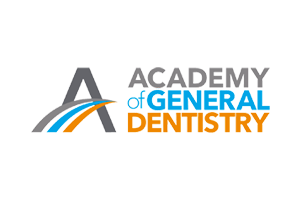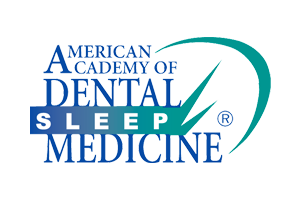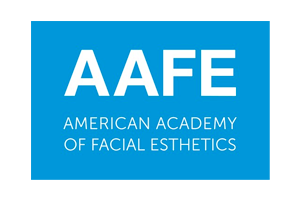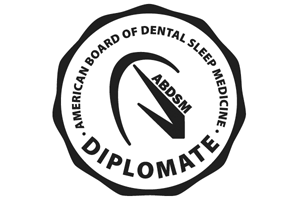Gentle Care
Accepting New Patients | Open Evenings
We’re accepting new patients and can help with dental emergencies. Give us a call or send us an email to book an appointment.
We offer a full range of general, family, cosmetic, restorative, and emergency dentistry.
We always focus on gentle techniques and use advanced equipment to ensure your comfort.
All of our services are priced competitively and many of our services are covered by popular insurance plans.

The term TMJ actually refers to the temporomandibular joint in the human jaw. This is the joint that connects the jaw to the temporal bones of your skull – acting as a hinge. The TMJ connects the jaw in such a way that it allows for up and down, open and close, and side to side movement. It is also primarily responsible for manipulation of speech, yawning, chewing and language. In some instances, people can experience pain or symptoms with the TMJ that is commonly referred to as Temporomandibular Joint Disorder or TMD.
The primary causes of a TMJ disorder (TMD) can be problems with the joint or the jaw muscles attached to the joint. Commonly, injuries to the head, neck or face can all lead to TMD. Other causes of TMJ Disorder include stress, patterns of clenching or grinding teeth (usually at night), and arthritis pain that cause tightening and clenching of jaw muscles or the face.
TMD can be pretty painful or even be the cause of a great deal of discomfort. Symptoms that are commonly referred to contributing to TMD are:
If you are experiencing jaw pain, contact us for an initial TMJ appointment.
Most of our treatments are covered by popular insurance plans. Give us a call with your insurance details and we’ll help you determine your coverage. After your treatment, we collect payment from you and will help you submit your insurance claim.
No Insurance, No Problem!
All of our treatments are priced competitively and we offer our own in-house dental plans to ensure you can maintain excellent oral health in a cost-effective manner.
We’ve also partnered with Cherry as a buy now, pay-later financing approach.
or call (631) 724-0455

Ask us Anything…
or call (631) 724-0455
Over-the-counter medication: We may prescribe the medications to help to relieve the pain or swelling caused by the TMD. We may also suggest exploring lifestyle choices that contribute to relaxing the muscles and decrease instances of clenching or grinding teeth.
Nightguard: One of the most commonly recommended treatments for TMJ Disorder are custom-molded plastic night guards that fit over the lower or upper teeth. They are designed in such a way to prevent subconscious grinding which typically occurs at night. It can also contribute to an improvement in biting form over time and increase airflow at night.
Possible Dental Work: Depending on the case, there may be protruding teeth or crowns/bridges that are contributing to pain in the jaw. This will have to be determined in the office during consultation and testing. In very severe circumstances, we may recommend a surgery with an oral surgeon.
Orthodontic treatment: a misaligned bite, or malocclusion, could be contributing to your jaw pain. Crooked teeth or an irregular bite create traumatic forces which put strain on your jaw joints and cause tooth wear.
For those experiencing TMD and are seeking TMJ Treatment, contact our office for an initial consultation. We will be happy to answer all of your questions and get you on the right path to a life free of jaw pain.
The temporomandibular joint is the only joint in the human face. It connects the skull at the temporal bone, to the mandible – hence the name, temporomandibular. Disorders of the jaw muscles, nerves, and bone are known collectively as temporomandibular disorders or TMD.
The TMJ moves the mandible up, down, and side to side. It helps us talk, chew, and yawn. However, diseases of the TMJ are fairly common – a study showed that four in ten people suffered from joint pain in one form or the other.
TMD can be multifaceted. But don’t worry, at Pearl Dental we conduct thorough examinations to help determine the cause and come up with a simple, yet effective treatment plan!
It’s difficult to rule out a single cause for TMD; the disorder can be brought on by several factors, for example:
The rest of the causes seem fairly familiar, but what is bruxism? Bruxism is defined as involuntary clenching of the teeth, that is, grinding. Someone who regularly grinds their teeth isn’t necessarily aware of the fact that they do it. However, on clinical examination, the biting surface of their teeth is relatively flat.
A TMJ examination is a typical mainstay in routine dental examinations. Your dentist has probably caught on to an existing TMD. However, if you haven’t been to the dentist in a while – which you really should – you might want to consider going in for an examination if you have any of the following signs:
There are three main types of TMD:
Associated with myofascial pain – The most common form of TMD. The pain stems from the fascia, the connective tissue overlying the muscles of the jaw, as well as the muscles controlling the jaw movement itself.
Internal derangement – Problems with the internal anatomy of the joint itself; the disc and the bone.
Degenerative joint disease – TMD caused by arthritis; osteoarthritis or rheumatoid arthritis.
Treatment options for TMDs can range from fairly straightforward, and simplistic ones to invasive surgical procedures.
Here are a list of treatment options for TMD:
Stress can, in fact, cause TMD! Some people tend to clench their teeth or bite their nails when they’re stressed. This inadvertently causes muscle strain and leads to TMD. The solution? Break the habit!
Here’s a fun little tid-bit: Stress has been linked to well over a hundred medical and dental ailments.
Symptoms of temporomandibular joint disorder, TMJ or TMD can range from mild pain to throbbing headaches that can keep you up at night. TMD can be difficult to diagnose, but simple enough to treat.
While there are invasive treatments, they’re reserved for severely traumatic cases. Most TMD can be resolved with physical therapy, simple appliances, and a few therapeutics.
For a simple yet effective treatment plan, contact us at Pearl Dental Clinic!
Our Promise to You
or call (631) 724-0455
You’re the Boss
The first step to better oral health is giving us a call to book an appointment.
During your first visit we will take some X-Rays and give you a tour of your mouth with our intra oral cameras. Then, we’ll learn about your oral health goals and give you any applicable treatment options.
Once you know what is going on inside of your mouth, you make the treatment decisions that are best for you. We will never be pushy or recommend treatment that you don’t need.
or call (631) 724-0455
 Laura Endres2023-09-19I have severe anxiety when it comes to visiting the dentist. Dr. Sonia made me feel so comfortable and at ease! I am very happy that I can now go to the dentist without fear. I cannot recommend this dental practice enough and I would be remiss to not mention her fantastic dental technician..What a team :)
Laura Endres2023-09-19I have severe anxiety when it comes to visiting the dentist. Dr. Sonia made me feel so comfortable and at ease! I am very happy that I can now go to the dentist without fear. I cannot recommend this dental practice enough and I would be remiss to not mention her fantastic dental technician..What a team :) Tj Stanton2023-09-08Sonia is the best! Between chairside manner, efficiency, and kindness there is no other dentist I’d rather go to!
Tj Stanton2023-09-08Sonia is the best! Between chairside manner, efficiency, and kindness there is no other dentist I’d rather go to! Stephanie Knight2023-08-18Wonderful staff. They are friendly and make you feel like you're in good hands.
Stephanie Knight2023-08-18Wonderful staff. They are friendly and make you feel like you're in good hands. Dana Levanti2023-08-03Very professional, friendly and extremely thorough. She explained everything that needed to be done. I highly recommend!
Dana Levanti2023-08-03Very professional, friendly and extremely thorough. She explained everything that needed to be done. I highly recommend! Jerold Dougherty2023-07-18Fantastic service, very attentive. You're made to feel as comfortable as possible. I couldn't recommend them more!!
Jerold Dougherty2023-07-18Fantastic service, very attentive. You're made to feel as comfortable as possible. I couldn't recommend them more!! Joel Spiegel2023-03-14I was very pleased with my experience . All the people I came in contact with- dentist, dental assistant and receptionist were very welcoming as well as informative. The exam was very thorough. I feel that I was well taken care of. Jill Spiegel
Joel Spiegel2023-03-14I was very pleased with my experience . All the people I came in contact with- dentist, dental assistant and receptionist were very welcoming as well as informative. The exam was very thorough. I feel that I was well taken care of. Jill Spiegel Nikki Vinokur2023-02-20Dr. Sonia and everyone at Pearl Dental are always so kind and considerate during my appointments! I always feel so at ease during my routine cleanings and I can always ask any questions I have without feeling embarrassed. I would highly recommend Pearl Dental to anyone in need of dental services.
Nikki Vinokur2023-02-20Dr. Sonia and everyone at Pearl Dental are always so kind and considerate during my appointments! I always feel so at ease during my routine cleanings and I can always ask any questions I have without feeling embarrassed. I would highly recommend Pearl Dental to anyone in need of dental services. Bob Lanfear2023-02-09Dr. Sonia Motwani and her staff are wonderful! She and her assistant Suzanne work seamlessly together. They constantly check on the patient to make sure any discomfort is dealt with quickly and they do superb work.
Bob Lanfear2023-02-09Dr. Sonia Motwani and her staff are wonderful! She and her assistant Suzanne work seamlessly together. They constantly check on the patient to make sure any discomfort is dealt with quickly and they do superb work. Cindy Tietjen2023-02-02Dr. Sonia and the office staff at Pearl Dental are wonderful. From the first visit they work to make you comfortable. Cleaning is thorough, her diagnostics are spot on, and crown replacement a pleasure. Prices are competitive and I look forward to a long dental relationship with Pearl. I highly recommend the practice!Google rating score: 5.0 of 5, based on 23 reviews
Cindy Tietjen2023-02-02Dr. Sonia and the office staff at Pearl Dental are wonderful. From the first visit they work to make you comfortable. Cleaning is thorough, her diagnostics are spot on, and crown replacement a pleasure. Prices are competitive and I look forward to a long dental relationship with Pearl. I highly recommend the practice!Google rating score: 5.0 of 5, based on 23 reviews





Hours
Monday: 9 AM – 6 PM
Tuesday: 9 AM – 6 PM
Thursday: 10 AM – 7 PM
Additional hours are available upon request and availability.